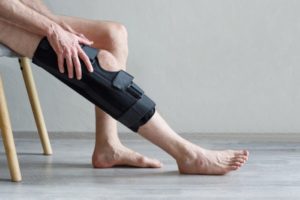
Accidents frequently occur without any warning, leaving victims with physical injuries, emotional distress, and financial burdens. When another person’s negligence or unlawful acts have caused personal injuries, the legal recourse available to victims includes filing a personal injury lawsuit.
Unfortunately, navigating the complexities of the legal system can be daunting when calculating compensation as damages. This is something many laymen find overwhelming. Understanding damages in personal injury cases allows victims to better represent themselves and receive adequate compensation.
Data shows that 41% of the time, California plaintiffs involved in personal injury lawsuits received compensation, underlining the significance of legal representation when proceeding with such matters.
Therefore, if you have been injured, it is in your best interest to contact an attorney immediately. For instance, residents of Burbank should search for an excellent Burbank personal injury attorney to represent them.
If you are interested in learning more about the various types of damages that may be awarded in personal injury cases and the factors that go into determining those amounts, you’ve come to the right place. Join us in exploring this complex world of personal injury damages and equipping yourself with tools for seeking justice and healing after an unforeseen incident.
Types of Damages in Personal Injury Cases
Before discussing the various types of damages available in personal injury claims, it’s essential to secure trustworthy and compassionate legal counsel. For instance, you can consider visiting https://mclachlan-law.com/ for an extensive selection of legal services for personal injury claims.
Understanding the various types of damages is vitally important, as they form the cornerstone of compensation claims by victims who have experienced injuries that have left them with physical, emotional, and financial suffering. Damages generally fall into three categories:
Economic Damages
Economic damages encompass the quantifiable financial losses incurred as a direct result of the injury. This includes medical expenses such as treatments, surgeries, rehabilitation costs, and ongoing care for recovery. Victims can also claim lost wages as a result of being incapacitated by an injury that restricts their work ability. Moreover, economic damages also address property damage, compensating for any harm caused to personal belongings or assets during the accident.
Non-Economic Damages
Non-economic damages address the intangible and non-monetary losses experienced by the victim. Compensation may include payment for physical pain and suffering, emotional distress, consortium loss, enjoyment loss, or disfigurement caused by an incident or accident. The aim is to mitigate the physical, psychological, and non-monetary adversities encountered as a result of the injury.
Punitive Damages
Punitive damages in personal injury claims provide additional compensation to the plaintiff beyond what their actual losses entail. While compensatory damages seek to compensate specific economic and non-economic losses, punitive damages act as punishment against defendants for acts of willful misconduct or gross negligence. They are meant to deter similar behavior in the future and are only awarded in exceptional cases to send a message of accountability.
Factors Influencing Damages Calculation
Calculating damages in a personal injury case is a complex and multi-step process. More serious injuries that cause long-term disabilities or require extensive medical treatments tend to garner higher damages awards.
Two other factors of crucial importance for recovery include the type and extent of medical treatment received as well as its prognosis.
Medical records and expert opinions help establish the need for ongoing care and its associated costs. The impact of the injury on the victim’s daily life and future abilities is also considered, as damages should cover not only tangible losses but also the intangible limitations caused by the injury.
Comparative fault and shared liability can affect damages, especially in states with modified comparative negligence laws, where compensation may be reduced if the plaintiff is found partially responsible for the accident. Submitting evidence and proof of damages in court is vital to supporting claims and ensuring an equitable assessment of compensation due to injured parties.
Understanding the Importance of Evidence
In personal injury cases, understanding the importance of evidence is paramount to building a compelling and persuasive claim. Gathering and preserving evidence from the scene of the accident or incident is crucial, as it supports the victim’s version of events. Expert witnesses play a pivotal role by providing specialized knowledge and professional opinions that can validate the victim’s claims and explain complex aspects of the case.
Documenting medical records and bills is essential to accurately assessing the extent of the injuries and the associated medical expenses, ensuring fair compensation for the victim’s medical treatment and future care needs.
Equally vital is proving emotional distress and non-tangible damages, as these intangible losses can significantly impact the victim’s life. In court, concrete evidence of emotional suffering is necessary to demonstrate the full extent of the injury’s impact and secure fair compensation. Overall, comprehensive and well-preserved evidence is the cornerstone of a successful personal injury case, giving the victim the best chance at receiving just and adequate compensation.
Final Thoughts
Understanding damages in personal injury cases is vital for both victims and legal professionals alike. By comprehending the different types of damages, the factors influencing their calculation, and the importance of solid evidence, individuals can navigate the complex legal process with confidence and ensure fair compensation for their injuries. With the guidance of experienced personal injury attorneys and a comprehensive understanding of damages, victims can seek justice, healing, and a path toward rebuilding their lives after an unfortunate accident.








